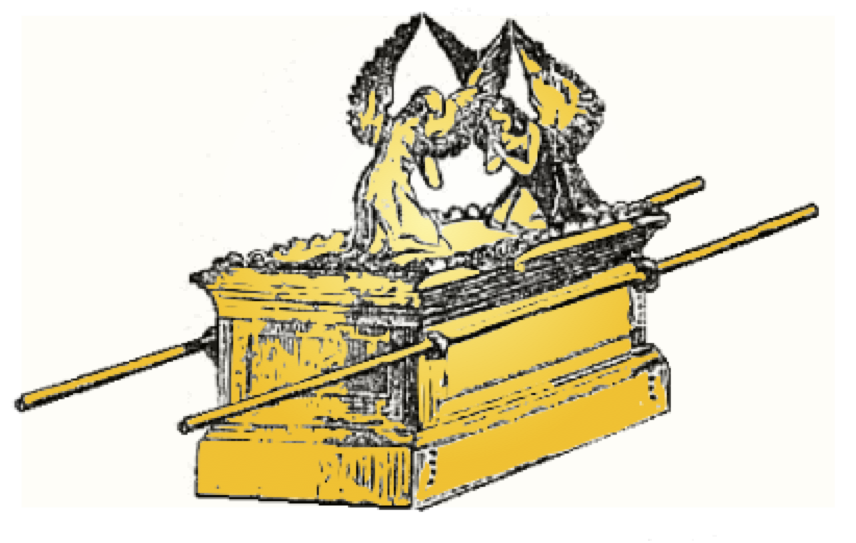| Do Jews believe in angels? I hear this question with surprising regularity. We are used to seeing angels in Christian art and hearing about them in Christian spirituality, so we might think they are a Christian idea. Since Judaism holds firmly to a single, incorporeal God, Jews might assume there is no place in Judaism for other heavenly beings. |
In this week's Torah portion (Terumah) there is a description of the image of angels that decorated the Ark of the Covenant in which the stones of the Ten Commandments were stored in the Tabernacle. They are described in elaborate, if inscrutable, detail:
Make two cherubim of gold—make them of hammered work—at the two ends of the cover. Make one cherub at one end and the other cherub at the other end; of one piece with the cover shall you make the cherubim at its two ends. The cherubim shall have their wings spread out above, shielding the cover with their wings. They shall confront each other, the faces of the cherubim being turned toward the cover. Place the cover on top of the Ark, after depositing inside the Ark the Pact that I will give you. There I will meet with you, and I will impart to you—from above the cover, from between the two cherubim that are on top of the Ark of the Pact—all that I will command you concerning the Israelite people.
—Exodus 25:18-22
Maimonides, the great Jewish medieval philosopher, argued that the prohibition agains idolatry is only against images that have been devised by human beings. Since the cherubim on top of the Ark were commanded by God, they are not forbidden (Guide to the Perplexed, book 3, chapter 45). That argument may seem circular, but it makes some spiritual sense.
The reason for prohibiting idolatry is to prevent human beings from thinking of themselves as gods. As soon as we begin revering the things we have made for ourselves—our wealth, power, or status, for example—we have committed a form of idolatry. The cherubim, in contrast, reminded the ancient Israelites that the only images permissible in the Tabernacle were those specifically commanded by God.
Another rabbinic view states that the cherubim on the Ark were a concession to a human need. God recognized the we need something concrete to behold with reverence. The cherubim fill that need, but with the understanding that the true place of holiness is in the emptiness between their wings. God does not reside just in objects—God is in the spaces between.
We have not outgrown our need for something material to focus our reverence. Despite our prayers that declare, "All the earth is filled with God's glory" (Isaiah 6:3), we still build houses of worship and imagine that God is, somehow, more present there than in the ordinary places of our lives. We still regard the ark that holds our Torah scrolls as a sacred place, like the Ark of the Covenant in the Tabernacle of the desert. We do need to have sacred spaces, but they also should serve to remind us that sacred space surrounds us everywhere we go.
So, yes, Jews do believe in angels. However, as the two angels on the Ark of the Covenant remind us, we do not believe in them as divine beings separate from God. Rather, they are symbolic reminders of God around us all the time. They are a physical representation of a Presence that we, otherwise, could not differentiate from reality itself.
Other Posts on This Topic:
Angels
Vayishlach: The Closest We Can Get to the Face of God


 RSS Feed
RSS Feed
